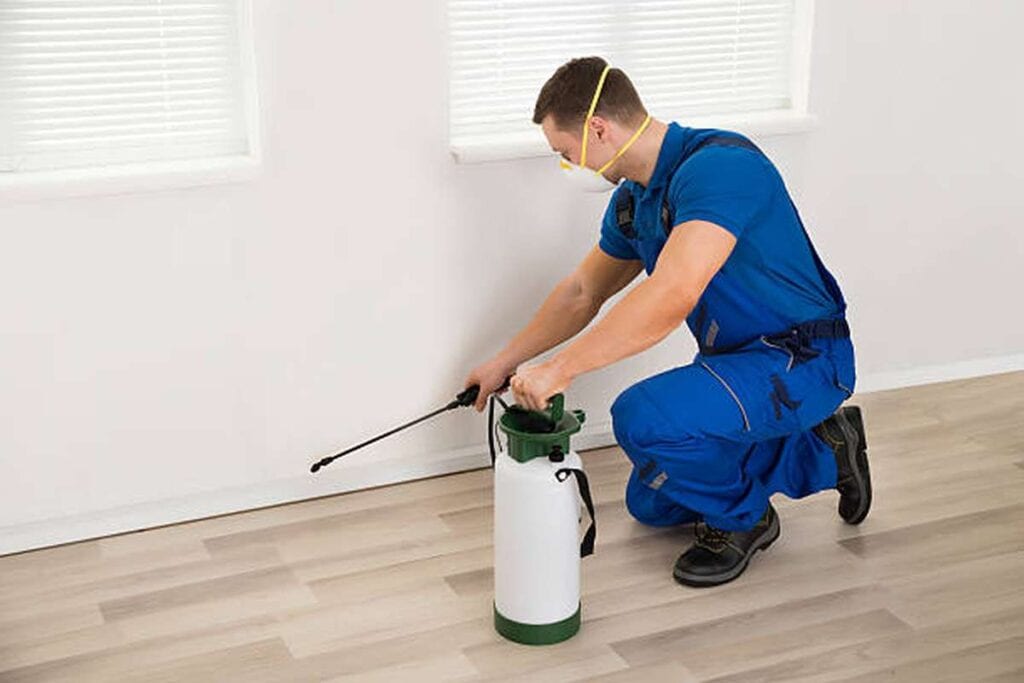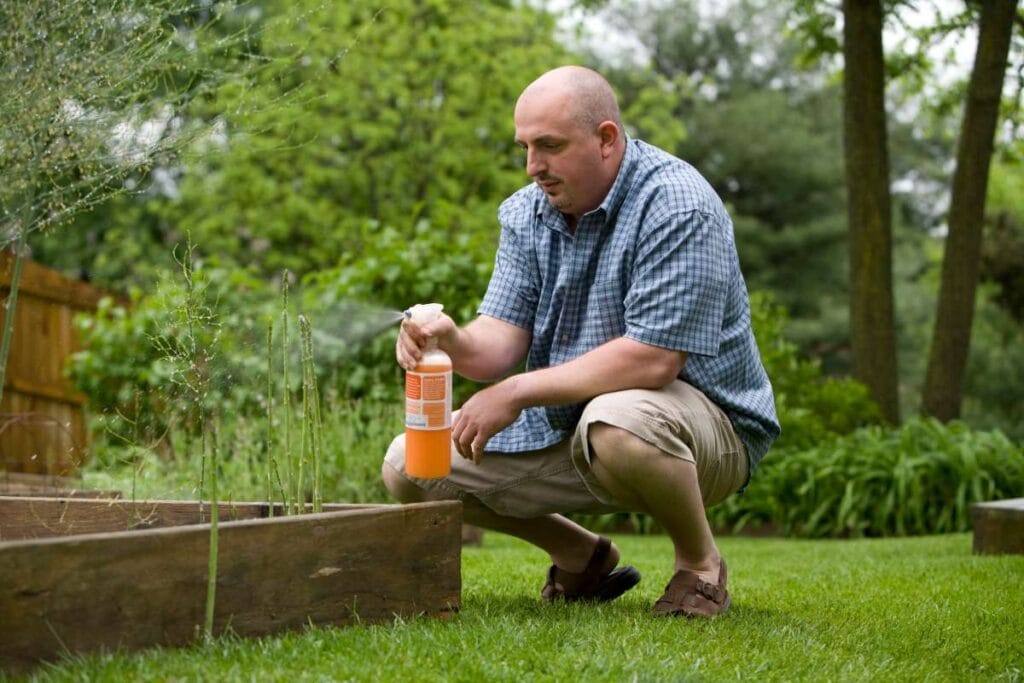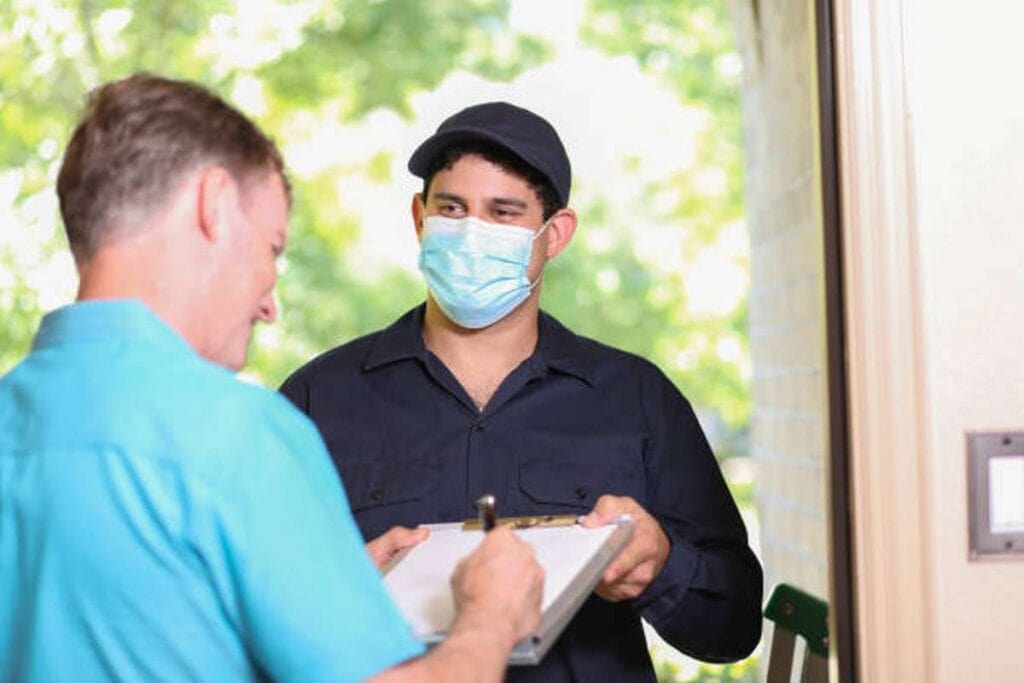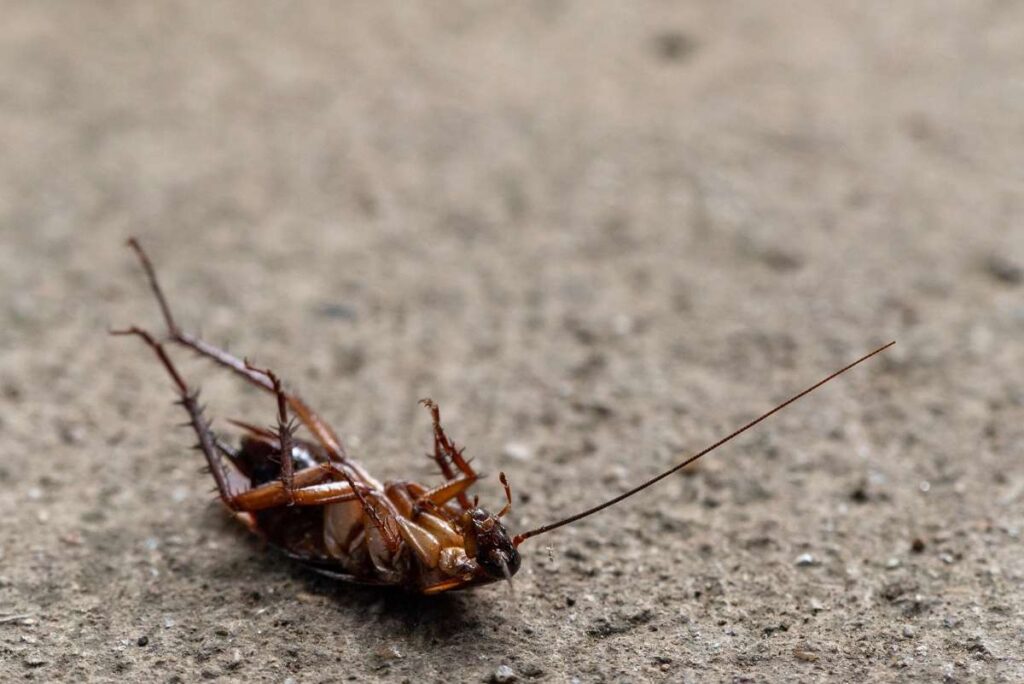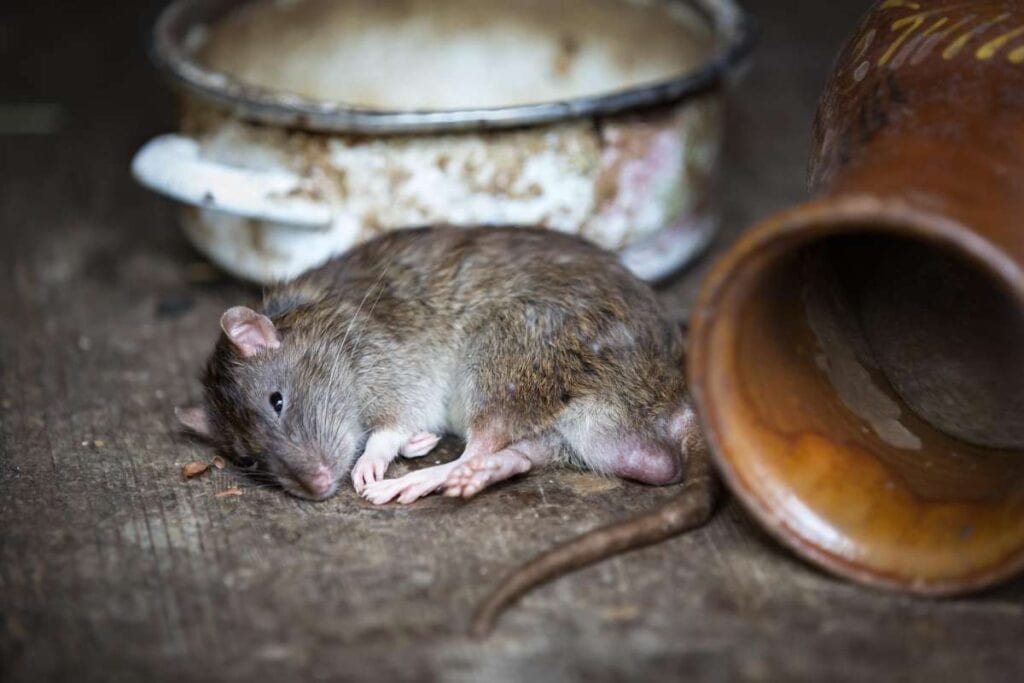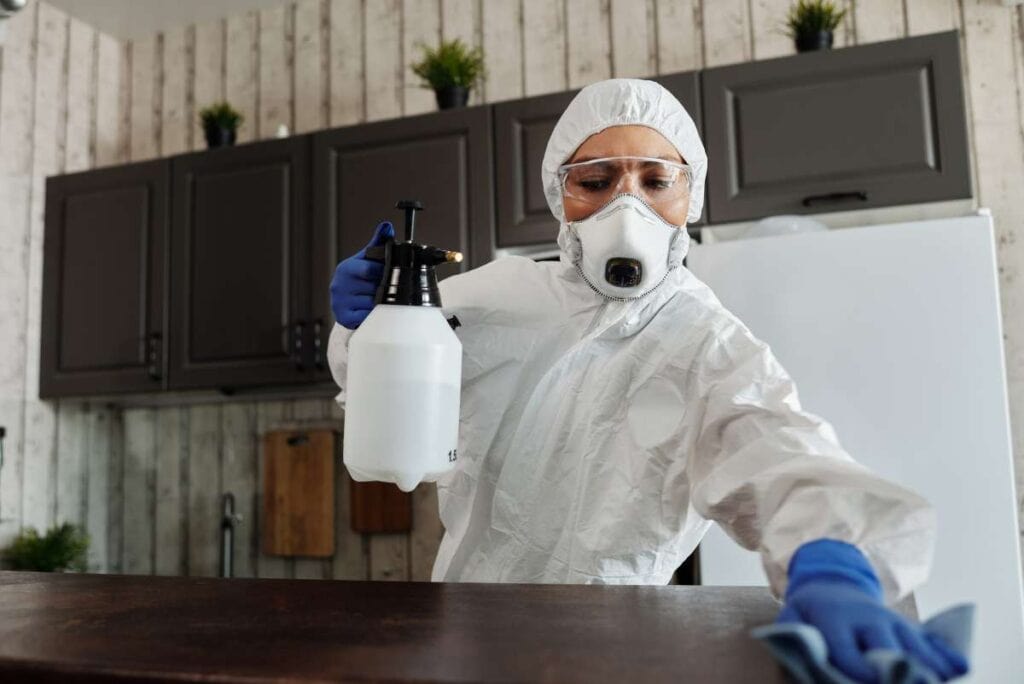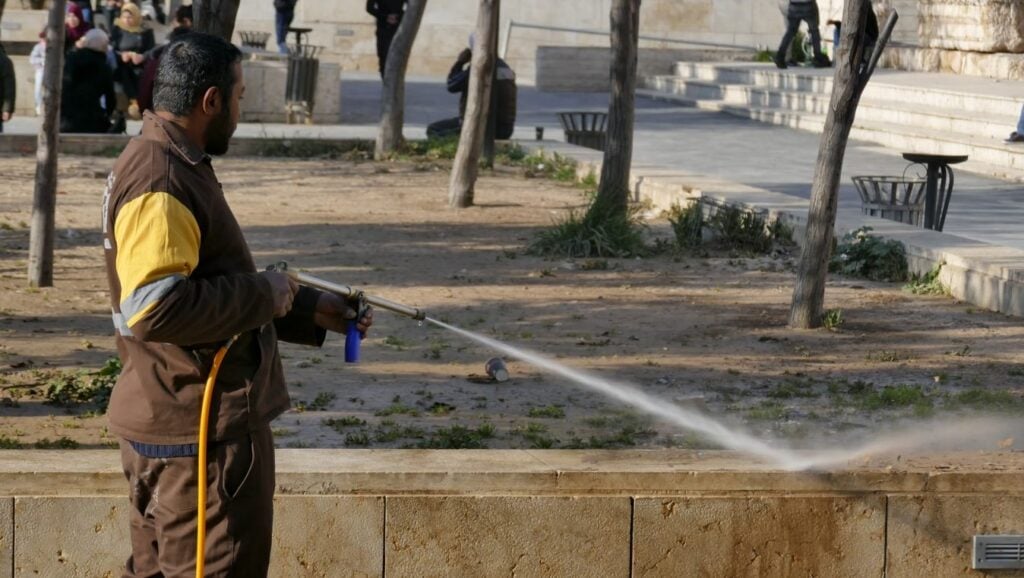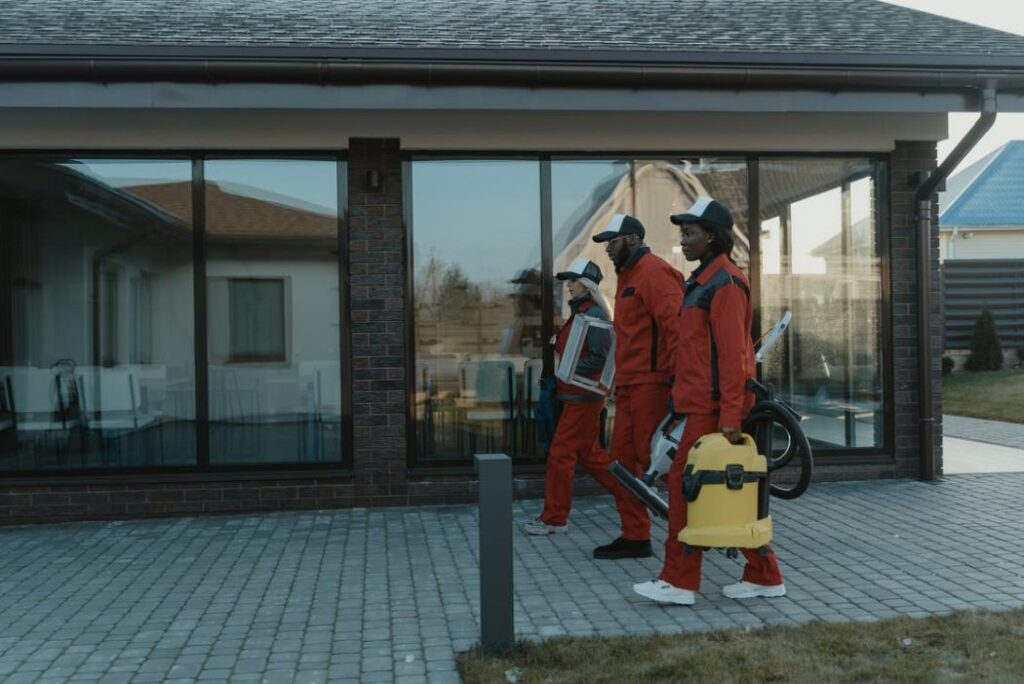You may wonder how long it will take for pest control to work if you have recently seen an upsurge in pest activity around your home. There is, alas, no foolproof solution to this problem. The effectiveness of pest control measures will be delayed by several variables, including the nature of the pests, the extent of the infestation, and the approach taken to eliminate them. However, after a few weeks of treatment, most people will see a significant reduction in bugs. Talk to your pest control service about changing your treatment plan if you haven't seen improvement after a few months.
Taking a break from the mundane demands of life is difficult enough. But your anxiety levels are likely to soar when you factor in the unexpected appearance of ants, cockroaches, or other insects. How long will it be before we're free of those pesky bugs? Do you have to leave your home for the treatment? How soon will an application get rid of the pests for good?
Treatments to prevent infestations typically take 15 to 30 minutes, whereas removals and exterminations might take up to a full day. The amount of an infestation can have a significant impact on the cost of extermination. Read on to find out which one applies to your circumstance.
The entire amount of time required for pest treatment to be effective depends on several factors. The severity of the pest problem is important since smaller pests can be dealt with more quickly and easily than larger bugs. Depending on the pest infestation on your property, the treatment may or may not be effective.
The duration required to see results from pest control varies depending on the type of pest and the method used to eradicate it. For example, you can exterminate cockroaches with poison bait stations in under twenty-four hours. Moreover, the returning pests will spread the poison to the rest of the colony. As a result, with this method, it is common to be able to eradicate a whole nest in about a week.
When dealing with a severe or persistent insect infestation, it may be necessary to try a new approach. Therefore, there must be follow-up visits so the worker can implement any new remedies necessary to eradicate bugs.
If you want to prevent another bug infestation, it's important to follow the worker's follow-up instructions to the letter. Timelines for pest management thus vary widely depending on the specifics of each situation.
Regular Pest Control Treatments
Regular treatments shouldn't take too much time on a property of about 2,500 square feet or less. If there are no unexpected delays or roadblocks, we may be in and out of there in under an hour. Remember that when we talk about routine treatment, we mean preventive. A house with an active infestation is not what we have in mind. When we say "routine," we mean regularly spraying and inspecting the yard's perimeter. These consultations are straightforward; we won't be keeping you for long.
The same logic applies to the care of diverse business structures. Nobody gets a break from the day's work. So, before we set up an appointment, we thoroughly evaluate the property. This way, we can better estimate how long the job will take and keep our disruption to a minimum during normal business hours.
Similar to in-home care, this refers to non-emergency, routine procedures. When you have our regularly scheduled service, your visit will typically go even faster. Since we frequent the area, we already know our way around after just one visit.
However, a thorough inspection can give us a solid grasp of the property's baseline circumstances.
Pests Treated: These treatments are for common, everyday pests easily eliminated through treatment.
Time: 30 minutes
Termidor Termite Barrier Installation
Termites can destroy your property and your savings. More than half a million homes are affected by termites annually. Every year, they waste about $30 billion fixing the harm they've done to buildings and crops.
Termites are a serious problem, so it's no surprise that Americans spend over $1.5 billion a year on modern termite protection and repairs. Building a substantial termite barrier is a common prophylactic method. To put things in perspective, we always send two professionals when we instal a termite barrier.
The time it takes to complete the treatment varies, as is the case with every medical procedure. In addition, it's labour-intensive since we have to dig a trench around the perimeter of the foundation and continue down to the footings. At that point, we pour a liquid treatment called Termidor into the trench and cover it up with earth.
In addition to the trenching, holes spaced around 10 mm apart must be drilled in all concrete sections of the home. We then inject additional Termidor beneath the foundation of the house-abutting concrete.
It may seem excessive, but termites are extremely persistent and expensive, so this is the best way to safeguard your home. In addition, it guarantees that you have a termite-killing barrier around your house.
Pests: Termites
Time: One 8-hour day
Factors That Can Delay Treatments
These times are merely estimates of how long procedures typically take. Even routine calls like a termite inspection may take significantly more or less time, depending on the circumstances. Possibly no more than thirty minutes if the examination is straightforward and there are no problems.
In rare cases, however, a treatment may take far longer than expected. For example, an inspection of a tiny townhouse, typically 20 minutes, can take up to an hour. Why? You must often remove baseboards, appliances must be disconnected and moved, and other delays incurred.
Thus, it can change based on the property, the nature of the call, and the particular pests in question.
There will still be ants for another three to four weeks after a pest control treatment. An ant pesticide's intended target is the colony where the problem is first bred.
Like that of other pests, rat and mouse activity may spike in the days immediately following treatment. Within three to four weeks, however, you will eradicate them forever. Once the rats have been eliminated, you can safely seal off their entry points and escape. Additional monitoring and therapy are typically required for around seven days.
When dealing with a current rat infestation, you must complete a preliminary procedure and the next pest control session within a week of each other. The first session will involve setting up baits or traps to see if the rodents will enter them.
The professionals in pest control will then check the current baits after a week has passed. After that, the second treatment will begin in case the traps are empty or not in their designated locations.
It takes roughly four weeks for ground-dwelling, webbed, and webbing spiders to mature
Therefore, webbing spider populations close to entryways and exits should drop by as much as 90% quickly. For the treatment to be effective, the spiders must come into contact with it when it is applied. Therefore, they must be there while the pest control experts are working. In addition, leave any webs in place until the professionals can deal with them.
Spiders that live on the ground can hide in underground tunnels or amongst the organic debris that litters your yard. Therefore, they completely reject all attempts at healing. If there is a large spider population in your home, you should treat pests once every two to three months. Gardens, mulch areas, leafy walkways, bushes, and other landscape features in the home call for regular pest control treatments.
It takes 3–4 weeks for a flea population to mature
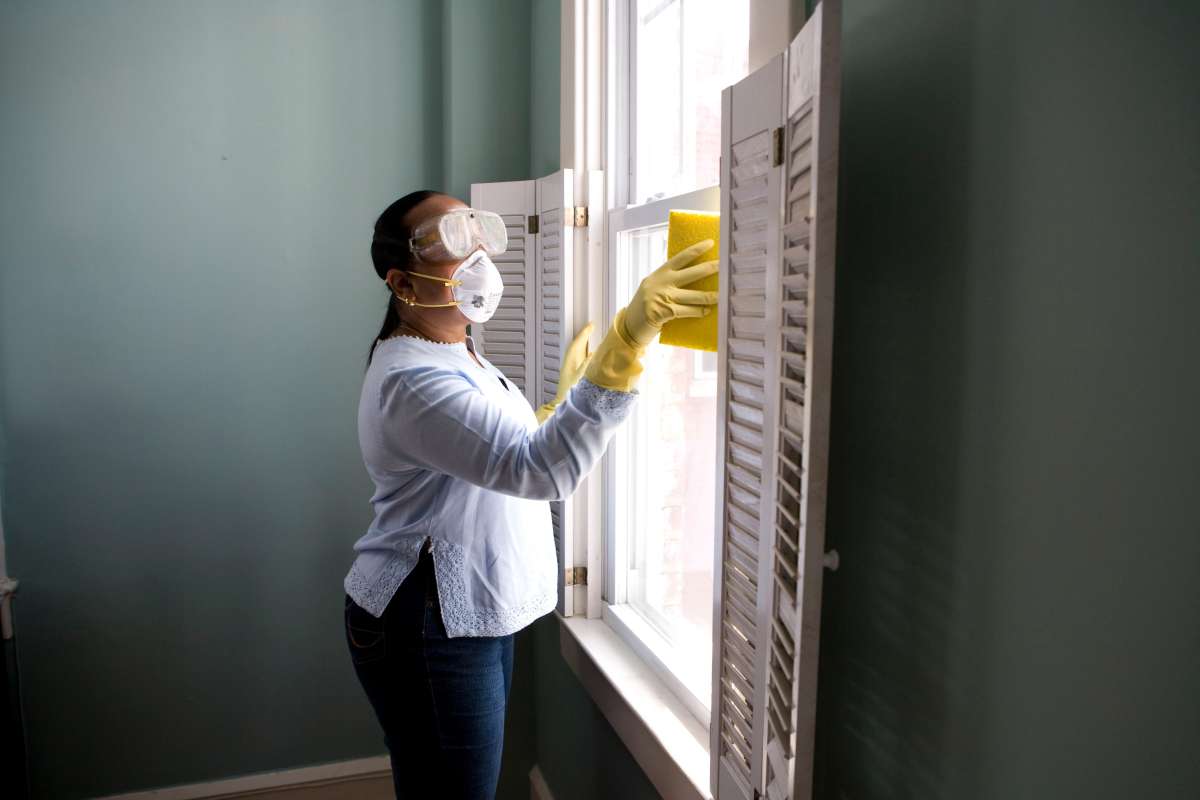
Regular vacuuming after flea treatment is preferable since it helps prevent flea eggs from hatching and flea pupae from emerging. It will take the fleas roughly three weeks to completely leave your home. Additional treatment is required for active infestations. The second procedure involves the eggs that will soon hatch. Therefore regular cleaning is essential.
Six weeks is about how long it takes for bed bugs to reproduce
However, after seven days, you should see a reduction of more than half of the pests, even if bed bugs were the most difficult to eliminate. Sheets, duvet covers, carpets, and curtains must all be washed in hot water and rinsed completely before being hung back up. Since bed bugs can hide in the tiniest of crevices, cleaning all furniture, walls, and other surfaces is necessary.
In addition, you'll need to vacuum the mattresses. In most cases, bug bites go away within two or three weeks. However, many active bed bug populations may necessitate a second treatment.
Pest Control Expectations
You may wonder what to expect from an exterminator once you have verified that there is an unwelcome infestation in your home.
A professional will often visit your home to investigate the infestation and identify its origin. It's not uncommon for problems to be able to be fixed on the same day they're encountered.
Suppose the infestation is larger than anticipated or presents additional challenges. In that case, they may need to reschedule the extermination for a later date so they can bring the necessary supplies and equipment.
Are Multiple Treatments Necessary?
All seasons provide their own unique set of pest control challenges. For instance, pests like spiders and ants may be active throughout the year, while other insects may move indoors or outdoors as the seasons change. In addition, some insects seek shelter from the elements or are actively searching for food when they enter a home, while others enter through any available opening.
Getting rid of an insect infestation typically takes more than one visit from a pest control professional. Additional treatments or combinations may be necessary since many insect eggs and larvae are resistant to the method used for adults. In addition, since some pests, like ants, leave an invisible scent trail, even if you get rid of all the insects within your home, others will come in on the trail.
What Happens During Bug Extermination?
For the duration of the fumigation process, you may need to vacate your home. This elimination procedure is commonly employed when dealing with termites that pose a serious threat to the integrity of your home's framework.
In certain cases, pest control treatments require a room to be sealed for at least two days.
Bees and wasps, for example, need to have their nests or hives removed to be exterminated. The insects will gradually disappear after the infestation's cause has been eliminated.
What To Do After Treatment
After having your home treated for bugs, it would be best to do a few things. The first step is to maintain a spotless, clutter-free environment at home. While filthy living conditions aren't the sole source of insect infestations, they certainly don't help. In addition to regular garbage and trash removal, you should also be quick to clean up any messes made by food or water.
Be on the lookout for any dripping water fixtures or pipes. As soon as you discover a leak, it would help if you took immediate action to rectify it.
Some insects, especially cockroaches, will withstand the treatment or take a week or two to die. So you can take heart in that the poison you've been using is still doing its job and, in due time, should solve your issue.
The time pests die after a pest control treatment varies depending on the treatment administered. A professional pest control service can give you an accurate estimate of how long it will take for the bugs in your home to die out and for you to resume living in comfort.
When Will I See Pest Control Results?
After applying a pesticide, how long will it take to start protecting your home after applying a pesticide? Again, this depends on the insect type and the infestation's severity.
For instance, it could take a week or two to eradicate a cockroach infestation caused by German cockroaches. After the exterminator has set down the poison, it will take some time for the entire colony to leave your home.
However, if the bed bugs are solely in your mattress, you may be able to get rid of them in a matter of hours.
Exterminating a complex infestation involving several pests can take a few weeks.
What to Do After Pest Control Treatment
You should maintain your house neat while waiting for the full effects of the pest control treatment to take hold. Keep an eye out for crumbs on the counter, paper, and cardboard box stacks.
Additionally, be wary of stagnant water since it can serve as a magnet for mosquitoes and other insects.
Is It Worth Hiring a Professional Exterminator?
Do-it-yourself approaches to pest management are tempting, but they rarely work since they don't address the underlying causes of the infestation. Furthermore, improper use can be extremely harmful to people and animals.
Conclusion
Several factors, such as the type of pests and the size of the infestation, will lengthen the time it takes to implement pest control procedures. Following a course of treatment lasting just a few weeks, most people will notice a dramatic improvement in their bug situation. If your pest problem isn't getting better after a certain amount of time, you should talk to your pest control agency about switching to a different treatment.
Controlling an infestation can take anywhere from a few weeks to several months, depending on the circumstances.
Termites cause damage to about 500,000 dwellings every year. About $30 billion a year is wasted on repairing the damage they cause to infrastructure and agricultural output. The most effective method of eliminating termites from a home is to trench around the perimeter and inject Termidor into the soil just below the foundation.
The average home inspection takes only 20 minutes, but one of these tiny townhomes could take up to an hour. It is recommended to do the initial process and pest control session for a rat infestation within a week of each other.
In most cases, a specialist will come to your house to assess the problem and locate its source. Linens including sheets, duvet covers, carpets, and curtains should be cleaned in hot water and given a thorough rinsing. In order to get rid of bed bugs, you need to thoroughly inspect and clean all furniture, walls, and other surfaces. It usually takes more than one visit from a pest control technician to completely eradicate an insect problem. It's possible that you'll have to find alternative lodgings while your property is being fumigated.
When the source of the infestation is removed, the insects will eventually go. It may take several weeks to eradicate a sophisticated infestation. In comparison to DIY solutions, professional exterminators eliminate pests more quickly and thoroughly. Keeping the home clean as you wait for the pesticide to take action is an important step in ensuring its success.
Content Summary
- If you've seen a rise in pest activity in and around your house, you might be wondering how long pest treatment will take to take effect.
- If your pest problem has not improved after several months of treatment, you should discuss alternatives with your pest control agency.
- It is dependent on a number of factors how long it will take for the pest treatment to be effective.
- It's crucial to adhere to the technician's follow-up recommendations to the letter if you want to avoid another bug infestation.
- Additionally, it ensures that you have a barrier surrounding your home that will prevent termites.
- Insecticides don't eliminate ant populations for at least three weeks.
- There is a strict one-week window between the first round of treatment and the second round of pest control for an active rat infestation.
- It is essential that the spiders actually touch the treatment for it to work.
- Therefore, they need to be there while the exterminators are doing their task.
- Treatment should be repeated every two or three months if there is a high spider population in the home.
- Routine pest management is essential for gardens, mulch areas, leafy walks, bushes, and other home landscape features.
- In most cases, a bug infestation requires multiple visits from a pest control specialist.
- When you apply a pesticide to your home, how long until it begins protecting you against pests?
- Keep your house clean while you wait for the pest control treatment to take full action.
- Generally speaking, hiring a professional exterminator is the best option because it gets the job done more quickly and thoroughly than DIY approaches.
- In what timeframe may roaches be eliminated via pest control?
- Removal of an active ant or cockroach infestation might take up to an hour and a half to two hours.
Frequently Asked Questions
Chemical Control
It is the most popular type of pest controlling method. You can treat fungi with chemical pest control. There are different types of chemical control including organic chemical treatments, with botanic or fermented products.
If you choose a quarterly plan, expect to pay between $100 and $300 per treatment. Annual pest control services for small infestations or yearly inspections typically cost around $300 to $500, which is similar to a single-visit treatment.
Professional exterminating provides faster and more effective results than do-it-yourself methods, in most cases. They can also save you money in the future by identifying pest problems early and eliminating them fast, preventing a costly infestation and/or damage in the future.
In most cases, professional exterminating provides faster and more effective results than do-it-yourself methods. They can also save money by identifying and eliminating pest problems quickly, preventing costly infestation and damage.
Regarding regularly scheduled pest control, we suggest treating your home once a quarter or every two to three months.
Barrier spraying is NOT the most effective method of preventing insects from entering a home. Insects have a part in the ecosystem, so you should take measures to exclude the pests from home and not kill all insects, as some can be beneficial.
They stroll while dying. Over time, you should witness fewer dead roaches. Keep track of carcasses and problem areas.


